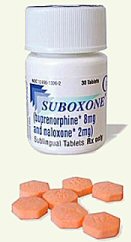Alternatives to Methadone Maintenance Treatment in Opiate Addiction Recovery
Methadone Maintenance Treatment is commonly used in the effective remedial care for those in recovery from opiate addiction. Likewise, many alternatives to methadone maintenance treatment do exist to help those who are worried about using a replacement medication, would like a safer means of treatment or who have had problems with methadone in the past. Two of the most common alternatives to methadone are Buprenorphine and LAAM.
Buprenorphine
According to a recent study at Smith University, “The most commonly used maintenance medication for opioid dependence in Australia at present is methadone, but for many patients this treatment is a mixed blessing. The need for daily dosing, the potential for overdosing, and the likelihood that dependency will result in a difficult withdrawal phase may make methadone unattractive and unsuitable for some of these people.” As such, many have turned to Buprenorphine, a partial agonist that is a available in sublingual tablet form and can sometimes be taken every other day rather than daily.
The Center for Substance Abuse Research reports that, “Buprenorphine is a potent (30-50 times greater than morphine) semi-synthetic narcotic substance that has recently been approved (after 12 years of extensive research) to help treat heroin and opioid dependency.” This drug has a lessened risk of resulting in respiratory depression and is generally considered safer than methadone especially in the event of overdose. Buprenorphine has gained greater popularity in the treatment field, “especially in Europe where there is a growing problem of opiate use during pregnancy,” as methadone can be highly dangerous to unborn babies, according to The Internet Journal of Allied Health Sciences and Practice.
Naltrexone

Suboxone is an alternative to methadone but still is a medication maintenance treatment.
According to Harvard Health, “A different kind of drug treatment for opiate addicts is the long-acting opiate antagonist naltrexone, taken three times a week after detoxification.” This medication blocks opiate receptors and stops or even reverses the effects of opiates. If an individual takes an opiate while he or she is taking Naltrexone the repercussion will be highly uncomfortable and include serious symptoms of withdrawal. Studies have found that while Naltrexone can be highly effective at preventing relapse because user’s don’t want to feel the serious side effects of withdrawal which are influenced by the use of opiates in conjunction with the medication, the effectiveness of the treatment is generally derailed by users who discontinue the use of this daily medication.
Behavioral Therapy & Counseling
Through varied methods of counseling and behavioral therapy, the premise is that those in recovery from opiate addiction can learn new patterns of behavior that do not include the use of drugs. According to the National Institute on Drug Abuse, “behavioral approaches help engage people in drug abuse treatment, provide incentives for them to remain abstinent, modify their attitudes and behaviors related to drug abuse, and increase their life skills to handle stressful circumstances and environmental cues that may trigger intense craving for drugs and prompt another cycle of compulsive abuse.”
Some of the most common behavioral therapies that are used in the treatment of opiate addiction include:
- Cognitive-Behavioral Therapy (CBT)
- Contingency Management Interventions
- Motivational Incentives
- Community Reinforcement Approach with Vouchers
- 12-Step Facilitation Therapy
- Family Behavioral Therapy
Many patients have found that mere attendance and participation in a program that includes one of the above aforementioned methods of therapy can provide a highly effective alternative to methadone maintenance treatment for recovery from opiate addiction.